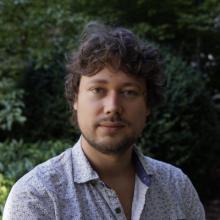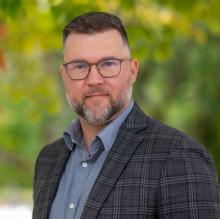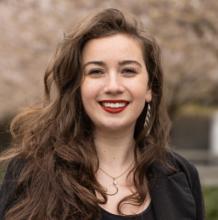Although scholars have predicted that racial differences would eventually morph into one accepted human race, this has not been the case. In fact, during the last decade the salience of race has appeared to intensify as discussions around it has become more evasive on one hand, and divisive on the other.
Research Description
Although scholars have predicted that racial differences would eventually morph into one accepted human race, this has not been the case. In fact, during the last decade the salience of race has appeared to intensify as discussions around it has become more evasive on one hand, and divisive on the other. While most North Americans are exposed to racialized politics, history, and ongoing conflict, an increasing number of people are deciding to engage in long-term interracial relationships, illustrating a particular permeability in racial barriers. The goal of this project is to interrogate and better understand how individuals of different races allow civility, humanity, and trust to override the socially dominant discourse and racial ideologies, choosing to engage in intimate relationships with out-group members. In approaching their experiences from an antiracism framework, I will investigate the strategies used to reconstruct ideas of race and counter societal racialized ideologies. My research asks: i) How do individuals in a black/white mixed-race relationship experience their racialized identities as a couple or a family?; ii) How do they move toward an understanding based on common ‘civility’ and trust?; and iii) How do they respond to and negotiate societal perspectives on their mixed race union?
What does being a Public Scholar mean to you?
I associate being a Public Scholar with the freedom to move and expand the results of my research beyond academic purposes, while working alongside interdisciplinary scholars with similar interest in engaging with those outside of academia. Being a Public Scholar gives me an opportunity to build networks with community, government, business, and industry, creating vibrant collaborative partnerships.
In what ways do you think the PhD experience can be re-imagined with the Public Scholars Initiative?
Doctoral programs are being revamped in order remain relevant and sustainable. The Public Scholar Initiative re-imagines and re-invents unique and exciting approaches to completing the PhD program. It has the potential to invigorate research and relationships bringing diverse scholars together to develop multi-discipline and multi-sector partnerships while advancing knowledge and making social contributions. It also broadens our networks as scholars and opens doors that wouldn't necessarily be opened without PSI.
How do you envision connecting your PhD work with broader career possibilities?
Before embarking on my doctorate, I consulted in race relations in the public, private, and not-for-profit sectors. I witnessed a disconnect between what I had studied in post-secondary and what was actually taking place in the organizations and communities that I encountered. My hope is to better connect the skills and tools gained during my PhD work to the incidents and experiences explored by anti-racism educators and organizations.
How does your research engage with the larger community and social partners?
I hope to facilitate a committee made up of multi-disciplinary academics and multi-sector stakeholders who specialize in antiracism, multicultural, and diversity work. I will seek their input during data collection and present my findings to develop practical strategies that can be introduced to the sectors in which each has influence, for further development and implementation. A portion of the resulting recommendations and action plans will be evaluated as part of my dissertation and a community partner will be invited as an external examiner.
Why did you decide to pursue a graduate degree?
While working in industry as an antiracism and diversity consultant, I recognized the limited impact of the work that I was doing in isolation. I had research ideas that I wanted to explore but lacked the funds, skills, and credentials to initiate the projects. In pursuing a doctorate in sociology with a specialization in race and ethnicity, I hope to bring diverse stakeholders with their expertise together to investigate and generate experiences and potential solutions to the improvement of race relations.
Why did you choose to come to British Columbia and study at UBC?
There is no question that The University of British Columbia is one of the most beautiful campuses, but it was the impressive experience, research, and achievements of the scholars that attracted me to study here. UBC is one of the top universities in Canada and its sociology department is ranked among the top 20 in the world. I was aware of the highly esteemed faculty specializing in race and ethnicity, methodology, and theory in the department and wanted an opportunity to work with them and take in as much as possible. After Dr. Wendy Roth expressed interest in working with me, I had no interest in applying elsewhere.
I associate being a Public Scholar with the freedom to move and expand the results of my research beyond academic purposes, while working alongside interdisciplinary scholars with similar interest in engaging with those outside of academia.




